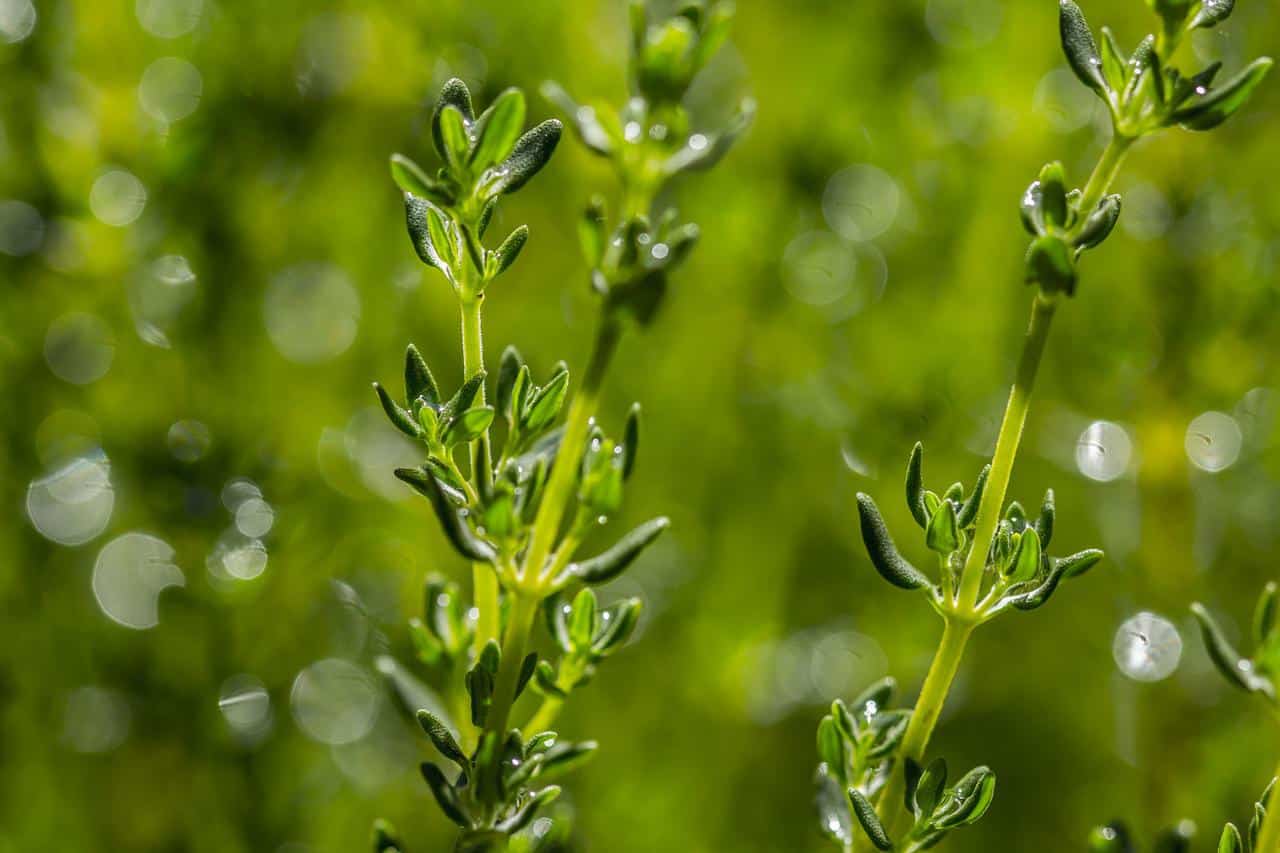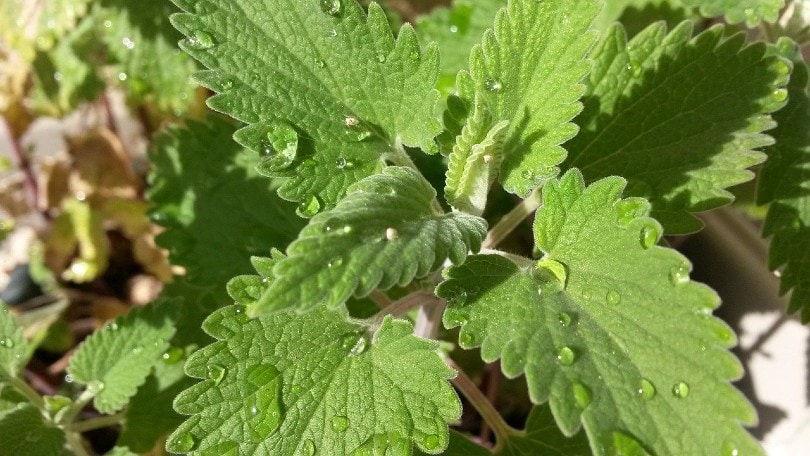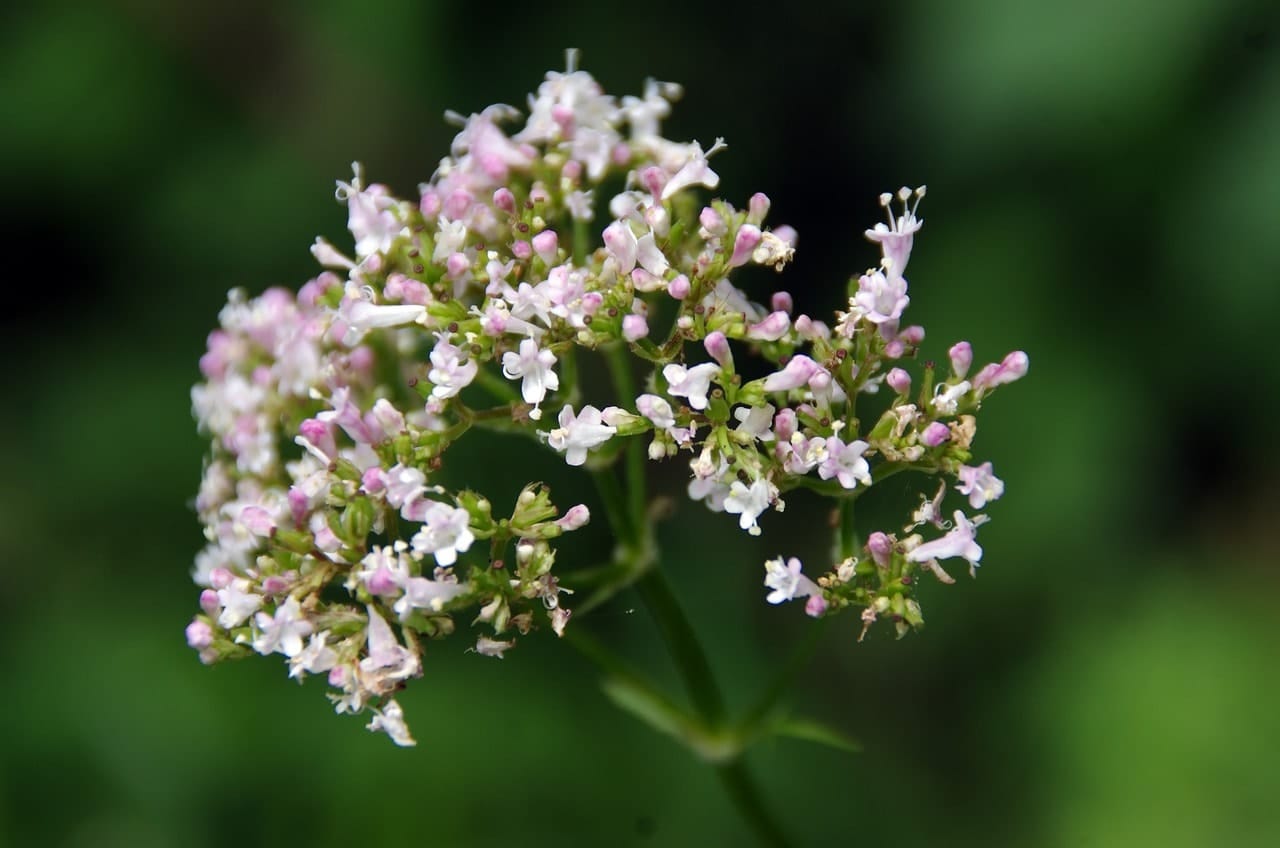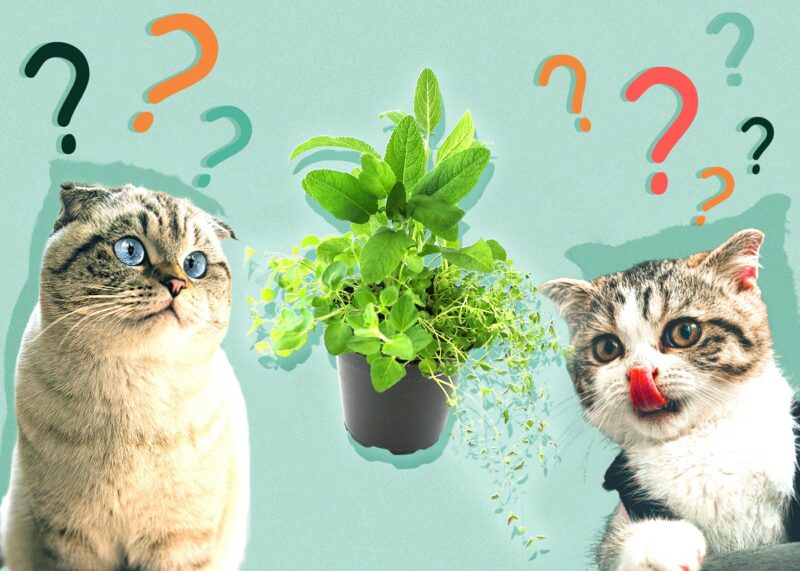Cats are obligate carnivores, which means the vast majority of their dietary intake should come from meat and other animal-based ingredients. However, it is not unusual for cats to also be given fruit, vegetables, and certain herbs, especially in commercial cat food, due to the potential health benefits.
Thyme is a perennial herb typically grown for its ornamental and culinary uses. It is considered safe for cats and even proposed to help kill worms, improve digestive system health, and prevent fungal growth, hence its inclusion in certain feline foods and supplements.
Read on for more information about thyme and its potential health benefits to cats, along with alternatives and ways that you can give this herb to your feline family members.
Potential Health Benefits of Thyme to Cats
1. Kill Worms
Many cats will suffer from intestinal worms at some point in their lives. They’re unpleasant and can cause gastrointestinal problems and illness. Thymol, which is found in thyme, has been shown to have some antiparasitic properties. However, it is not 100% effective and should not be relied upon to treat worms.
2. Prevent Bacterial Growth

Thymol is a chemical agent that has been shown to have antibacterial and antifungal properties.
3. Improve Digestive Health
Thyme is said to improve digestive health with its antioxidant, antiparasitic, and antibacterial properties.
Other Healthy Herbs
There is an herb called cat thyme that has similar effects to those of catnip but smells stronger. It is not related to thyme but is a relative of germander and does carry certain health benefits, such as stress relief for cats. Here are three other herbs that can have health or mental benefits for your cat.
1. Catnip

Most cat owners are aware of catnip and the seemingly intoxicating effect it can have on cats. It lifts their mood, reduces stress and anxiety, and can even be used as a topical application as part of a bath to help reduce itchiness and flaking skin. It doesn’t work on all cats, but it is considered safe, so there’s no reason not to give it a try.
2. Valerian

Valerian is given to humans to help them sleep but acts as a stimulant for cats. It tends to be a tasty favorite with cats, so it should be easy to feed them and is especially popular with lazy cats that need to lose weight because it will encourage them to exercise.
3. Licorice Root

Licorice root is a supplement that a lot of cats like the flavor of. It can soothe itching skin and help alleviate certain skin conditions. It may also help combat digestive, respiratory, and inflammatory complaints in your pet kitty.
How to Give Thyme to Your Cat
If you want to try feeding thyme to your cat, it is worth noting that not all felines will enjoy the flavor. First, ensure that the thyme that you choose is organic and washed well because while the thyme itself is non-toxic, any chemicals or pesticides that are on it may prove very toxic and could make your cat quite ill. Second, start with a small amount, and see how your cat reacts before offering a little more at a time. Typically, it is best to use a supplement or some kind of thyme product for felines because this will be portioned appropriately for your cat, to ensure that you are not administering too large of a dose.
Conclusion
Thyme is a popular herb used in cooking and as a medicinal aid for humans. It also has certain health benefits for cats, so it’s safe for your kitty to eat and could prove beneficial to them. It has proven effective at killing worms, aiding digestive health, and preventing bacterial and fungal growth in laboratory conditions. Consult a vet to ensure that there is no reason to avoid giving it to your cat, and start with a small amount before potentially increasing the dose. Bear in mind that not all cats will enjoy the flavor of this herb.
Next on your reading list:
Featured Image Credit By: maxmann, Pixabay















